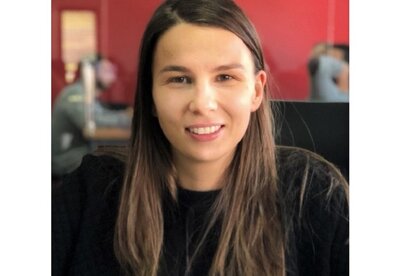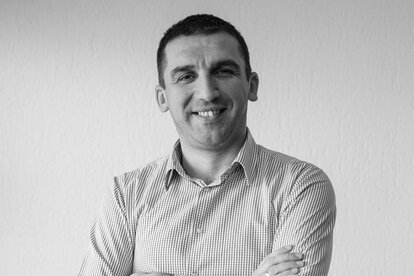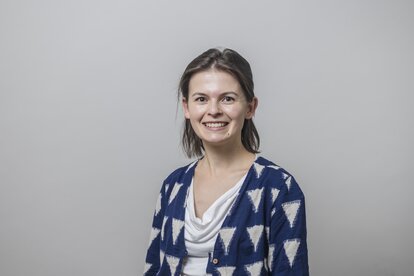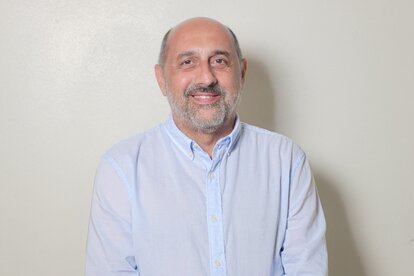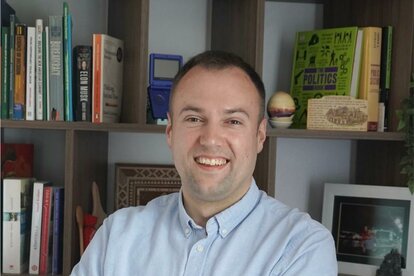In partnership with the Swedish International Development Cooperation Agency (Sida) and other implementing partners, Helvetas is leading a regional inclusive economic development program in 12 countries in Eastern Europe, South Caucuses, and Western Balkans.
While designing the program, we asked ourselves ‘what a regional program would look like’. We’ve been much more interested in the value addition of such a regional program than doing more of the same initiatives that we have in different countries – be it in Albania, Serbia, or Moldova.
Opportunities amid a complex and turbulent past
The 12 countries in Eastern Europe (Belarus, Moldova, & Ukraine), South Caucasus (Armenia, Azerbaijan, & Georgia), and Western Balkans (Albania, Bosnia & Herzegovina, Kosovo, Montenegro, N. Macedonia, & Serbia) share a joint legacy – history, governance and economic development. A turbulent past in an ever-shifting international context and the aspiration to join the European Union (EU) has marked the patterns of economic performance and regional dynamics. Overall, the drive towards EU integration seems to be still high even though it’s also perceived to be fading or has already faded. Most countries of the region are relatively small but experiencing high economic fragmentation.
Regional cooperation offered great potential in addressing shared challenges – ensuring political stability, security, and economic prosperity. Yet, this had come second in importance. It isn’t an obvious choice but as a last-resort option if relations like trade with the EU wouldn’t work. Countries are best with unsolved territorial disputes (e.g. Armenia and Azerbaijan; in Moldova in Eastern Transnistria and Southern Gagauzia; in Georgia the situation of Abkhazia and South Ossetia; Crimea in Ukraine). They are also concerned about the threats from Russia. What is alarming is the lack of sufficient common economic and security direction.
The last two decades have demonstrated a general improvement in the macroeconomic performance of most of the countries in the region. There has been an average growth and acceleration of Gross Domestic Products (GDP) across the region, a fast rise in foreign trade, and a substantial Foreign Direct Investment (FDI) inflows. The region is in ‘fledgling governance transition’, or a process that can be described as a zone ‘in-between’ – in between democracy and authoritarianism, market and state-controlled economy, capitalist economic experiments and socialist legacy.
Some of the positive indicators include gradual economic recovery, low inflation, fiscal consolidation, and lower current account deficits. One of the reasons is the widespread improvement in Doing Business rankings, as evidenced by the recent data of 2019. Prominent examples are Georgia (ranked 7); North Macedonia (ranked 17); Azerbaijan (ranked 34); and Serbia (ranked 44). Another indicator is the economic mobility of citizens to improve their economic and welfare status over time. Armenia, Azerbaijan, and Georgia achieved better living standards and a fall in the rate of poverty by half in the 12 years between 2005 and 2017.
The countries in the region are also making good progress with new, ‘localized’ strategies that build on their strengths. As an example, in the shadow of larger neighbors, Georgia started with promising reforms (e.g., regulatory and infrastructure), emerging from the legacy of dictatorship and corruption. In Armenia, civil society activism and voices from the public have led to signs of improvements in governance. The 2018 ‘Velvet Revolution’ in Armenia produced a fundamental change in government. Armed with a strong mandate for change, the new government has put forward an ambitious five-year program, which the parliament endorsed in February 2019.
How can opportunities be inclusive?
As mentioned above, some of the countries are making inroads to economic growth. This, however, isn’t translating into inclusive economic development to all. Worsening economic performance, on top of the Covid-19 pandemic, exacerbates the inequalities, leaving a large chunk of the population under the poverty line. Groups such as women and the youth are disproportionately affected.
Here’s an example: countries such as Armenia, Azerbaijan, Belarus, Georgia, Moldova, and Ukraine have made good progress towards women's economic empowerment. However, women still face important institutional, economic, and social barriers that maintain gender disparities, such as laws prohibiting women from taking up certain job occupations.
Armenia's economic growth performance in 2017 and 2018 resulted in a decline in the unemployment rate, which stood at 15.7% in mid-2018. Services were the main sectoral driver of growth. Many Armenians continue to live in poverty despite improvements to socio-economic indicators. In Belarus, inequality among people caused by a lack of fewer opportunities mainly in some regions is a serious problem. In Moldova, too, inequality across regions has been increasing over the past decade, while the welfare gap between urban and rural areas continues to widen.
An increasing number of people in the region, thus, see migration as hope for a decent life. Indeed, migration is a symptom of poor economic performance. One source of the problem is the underperformance of the educational systems in the region that do not respond to the needs of the market. In Moldova, 25% of the active labor force has already left. In Armenia, too, a quarter of the international migrants are aged 15-29 years old. Serbia has one of the world’s fastest shrinking populations due mainly to high migration, low immigration, and low birth rates.
Behind the economic performance of the different countries lies the multi-dimensional state of poverty and exclusion, such as disparity in income generation and a long period of unemployment. Poverty and exclusion happen in the region because of limited or lack of access to and use of resources (to sustain a decent living standard, meet basic needs and improve one’s life); opportunities and choice (to develop and/or use the resources to move out of poverty); and human security (possibilities to exercise their human rights and to find paths out of poverty).
Based on our experiences and referring to other different initiatives in the region, the program seeks to work on four key supporting functions (education and skills development; intermediation services; business and financial services; and public-private collaboration/coordination) and additional four issues of rules/regulations (private sector-led advocacy; standards; informal norms and values; and private sector growth strategies). These are critical for inclusive economic development to function better.
The program invests in more fundamental, long-term systemic changes (e.g., changes in how different institutions interact, improved participation in economic development for income and jobs). The selection of economic sectors/markets is critical not only to ensure that they are relevant and offer opportunities (economic) to the target groups (women and the youth) but also contribute to the long-term sustainability of the impacts – from institutional to social and environmental.
A regional ‘value proposition’
A couple of fundamental factors will influence the success of the program in contributing to the regional value addition.
First, managing a program as widespread as the 12 countries with teams spread across the region is not easy. While we work with strategic partners like CIPE, SDA, Help - Hilfe zur Selbsthilfe, and others, we’re also putting in place management systems that keep up pace with the changes. The future of work is increasingly becoming a thing we do, not a place we go to. Yet, we shouldn’t be losing the social and economic value of work as a safe and healthy workplace and the interactions with partners and stakeholders.
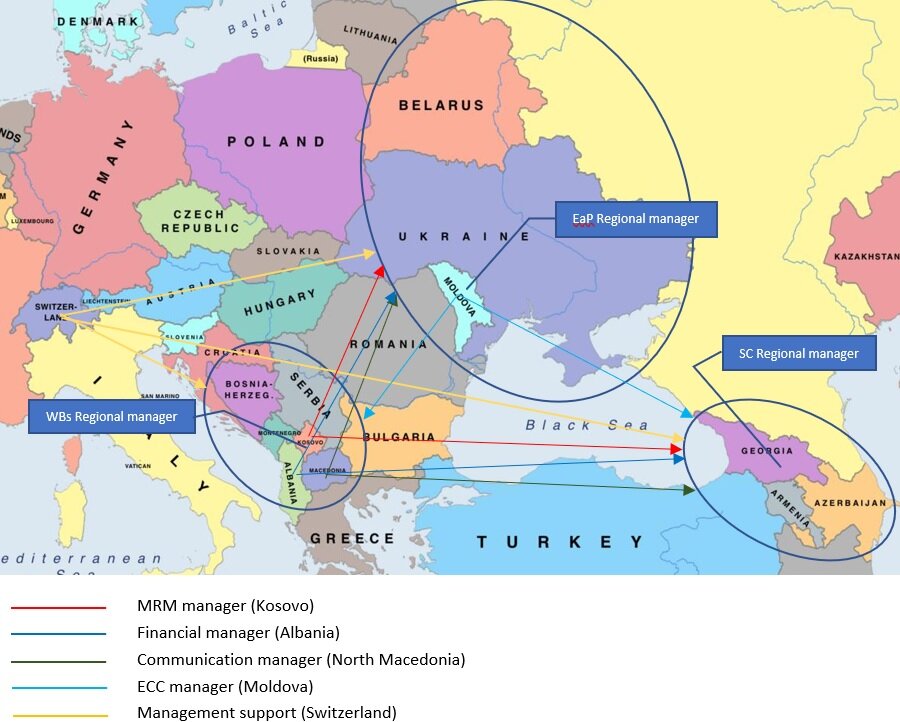
Second, creating a shared understanding of development philosophy – for sustainable and scalable impacts through facilitation – is at the core of the program. The program stimulates changes for more facilitation roles of development organizations by engaging with local and regional conveners.
Three key areas characterize the regional nature of the program.
Thematic focus
These are areas that are critical to tackling transboundary challenges, and also builds on existing common and strategic issues and improves their performance (e.g., competitiveness), and contribution to inclusive economic development. The program maps out individual countries, while at the same time having a regional perspective.
In other words, the ‘national-regional’ dynamics and nexus will serve the process of identifying and testing ideas that will add benefits to more countries in the region – new knowledge, shared experiences, and enhanced capacities through cooperation and a strong sense of shared interests (e.g., pooling of ideas and resources, the flow of goods, services, and capital). The focus is in line with the changing nature of global challenges and opportunities that countries in the region also face – from disruptive technologies for automation, globalization, and the aging workforce. The challenge is to link and leverage these potentials in new and different ways.
Institutional focus
The region’s pressing problems are far too complex to be addressed by a single sector and an actor in a single country. We see the program as a multi-stakeholder initiative, involving private sector enterprises, public sector institutions, academia, and civil society organizations. While the region is diverse covers, it also shows common challenges and opportunities. The program works to improve the vertical flow of information about economic development, including such questions as performance monitoring and inclusive benefits.
This requires identifying partners that have regional outreach to make a sensible investment by the program. The program generates a sense of understanding and support from key stakeholders in the different interventions, including the private sector/businesses, government, and civil society. Form follows functions. Therefore, examining functions and rules means examining the players which perform them and pay for them. The program does not assume that only one type of player can fund or deliver a particular function or rule.
Territorial focus
People don’t live in the 'region', but in different countries. A large diversity of local partners and ideas (at the micro, meso, and macro levels) contributes to increased capacity and local ownership as well as the generation of more innovative ideas. The program does not directly support actors in the different systems, but works through partners to facilitate solutions that have a high likelihood of ownership and scale beyond the life span of the program.
On the micro-level, the program works with private sector businesses in the selected markets/economic sectors, commercial service providers, as well as with civil society organizations. On the meso level, it works with public organizations like vocational education and training centers, universities, regional development agencies, free trade zones. The policy and business enabling environment dialogues deal with the improvement of the macro-level framework conditions.
Related readings
